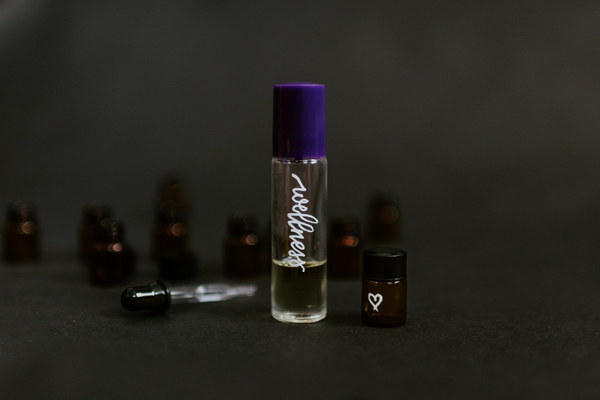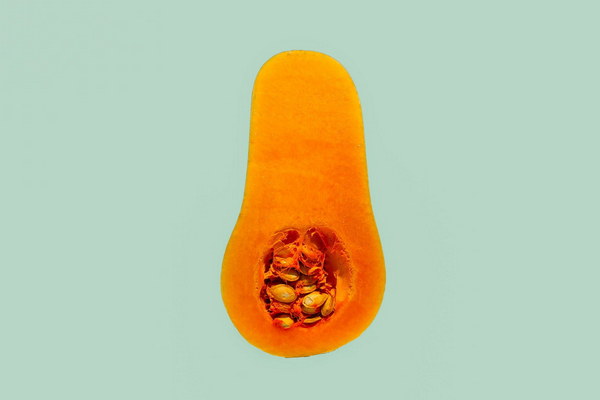Nourishing Your Way to Menstrual Health A Guide to Alimentary Remedies for Preventing Amenorrhea
Amenorrhea, or the absence of menstruation, can be a distressing condition for many women. While there are various factors that can lead to amenorrhea, including hormonal imbalances, stress, and medical conditions, certain dietary choices can help prevent or alleviate this issue. Here’s a comprehensive guide to using alimentary remedies to prevent amenorrhea.

Understanding Amenorrhea
Before diving into the world of alimentary remedies, it’s essential to understand what amenorrhea is and why it occurs. Amenorrhea can be primary, where a woman has never menstruated by the age of 16, or secondary, where a woman who has previously menstruated stops having periods for six months or more.
Several factors can contribute to amenorrhea, including:
- Hormonal imbalances
- Polycystic ovary syndrome (PCOS)
- Excessive exercise
- Extreme weight loss
- Stress
- Medications
- Thyroid disorders
- Genetic factors
Alimentary Remedies for Preventing Amenorrhea
1. Balanced Diet: A well-balanced diet is crucial for maintaining hormonal balance and preventing amenorrhea. Focus on consuming a variety of fruits, vegetables, whole grains, lean proteins, and healthy fats.
2. Fiber-Rich Foods: High-fiber foods, such as whole grains, fruits, and vegetables, can help regulate hormone levels and promote healthy digestion. Aim for at least 25 grams of fiber per day.
3. Calcium and Vitamin D: Calcium and vitamin D are essential for maintaining bone health and hormonal balance. Good sources of calcium include dairy products, leafy greens, and fortified foods. Vitamin D can be found in fatty fish, egg yolks, and fortified foods.
4. Iron-Rich Foods: Iron is vital for the production of red blood cells and can help prevent anemia, a common cause of amenorrhea. Iron-rich foods include red meat, poultry, fish, beans, lentils, and fortified cereals.
5. Omega-3 Fatty Acids: Omega-3 fatty acids have anti-inflammatory properties and can help regulate hormonal imbalances. Fish, flaxseeds, chia seeds, and walnuts are excellent sources of omega-3s.
6. Avoid Processed Foods and Sugary Drinks: Processed foods and sugary drinks can disrupt hormonal balance and contribute to weight gain, which may exacerbate amenorrhea.
7. Herbal Remedies: Certain herbs have been traditionally used to regulate menstrual cycles and alleviate symptoms of amenorrhea. Some of these include:
- Chasteberry (Vitex agnus-castus): Known for its ability to support the pituitary gland and regulate hormone levels.
- Dong Quai: A traditional Chinese herb that has been used to treat menstrual disorders and alleviate symptoms of amenorrhea.
- Black Cohosh: An herb that may help regulate hormonal imbalances and alleviate premenstrual symptoms.
8. Stay Hydrated: Drinking plenty of water is essential for overall health and can help regulate hormonal balance.
9. Regular Exercise: Regular exercise can help maintain a healthy weight and improve hormonal balance, but avoid excessive exercise, as it can lead to amenorrhea.
10. Manage Stress: Chronic stress can disrupt hormonal balance and lead to amenorrhea. Practice stress-reducing techniques such as meditation, yoga, and deep breathing exercises.
Conclusion
Amenorrhea can be a challenging condition, but by adopting a healthy diet and lifestyle, you can help prevent or alleviate this issue. By focusing on a balanced diet, incorporating alimentary remedies, and managing stress, you can take control of your menstrual health and improve your overall well-being. Remember to consult with a healthcare professional before starting any new dietary or herbal remedies to ensure they are safe and appropriate for your individual needs.









